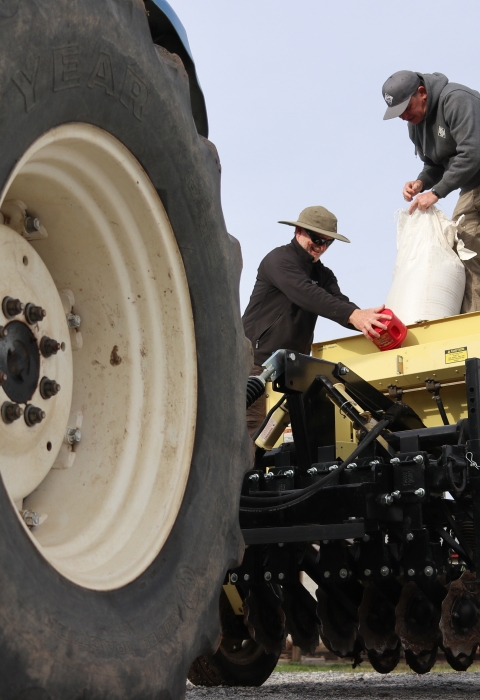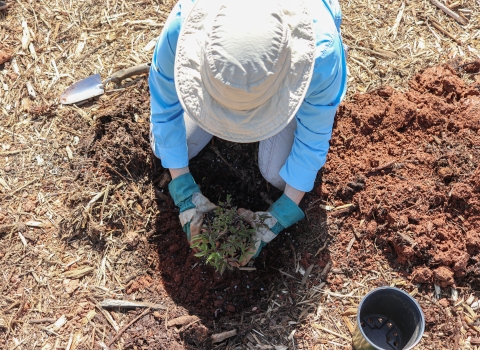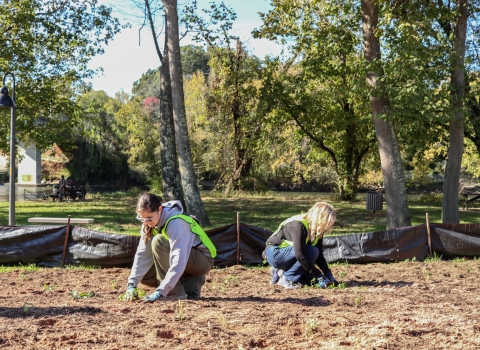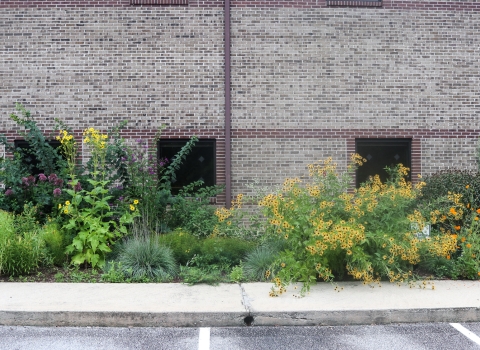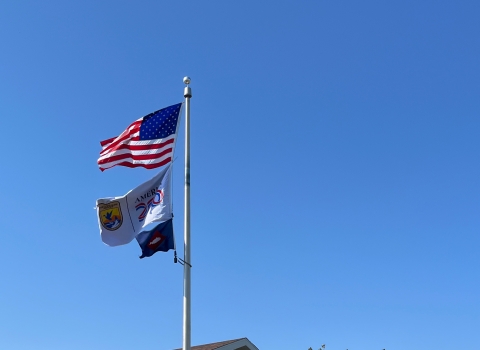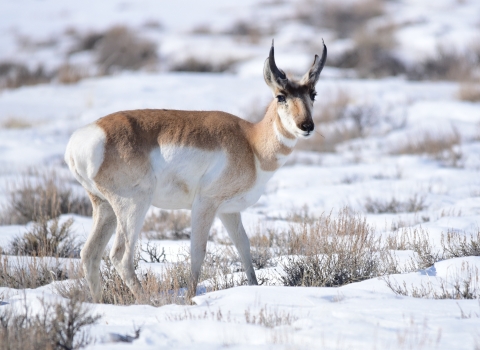On an overcast Friday morning in late winter, a small team gathered, coffee mugs in hand, on the edge of a public park in Mills River, N.C., the occasional walker or jogger passing by. It was planting day.
The town of Mills River was incorporated in 2003, stretching from Pisgah National Forest in the west, to the French Broad River in the east. A focal point of the community, and site of the town hall, is the 48-acre Mills River Park. It has typical local park amenities – playgrounds, sports fields, courts, a paved walking path. But the park also nods to the natural heritage of the area. With two river access points, the park is an easy put-in or take-out for paddlers and is a stop on the state’s recently launched snorkel trail, providing the opportunity for swimmers to take a look at life beneath the surface, including the endangered Appalachian elktoe mussel. Nearly half the park’s land sits in the Mills River floodplain and instead of using that space for sports fields, which would need repair after every flood, the town opted for a low-maintenance pollinator meadow.
The field will be a mixture of wildflowers and native grasses, complimenting a previously installed pollinator garden, and is the culmination of a lot of teamwork at the local, state, and federal levels. The town of Mills River provided the land – Mills River Park – and a vision for the park that incorporated the pollinator meadow. The North Carolina Wildlife Resources Commission provided the equipment – a tractor and seed drill that simultaneously cuts the soil surface and drops seed into the cut - and staff to operate it; and the U.S. Fish and Wildlife Service provided technical support in planning the meadow and funding for seeds through its Partners for Fish and Wildlife program.
Rainfall prevented the team from planting on their intended day – the soil was too wet, giving it a stickiness that would throw off the seed drill’s desired disking depth and the seeds would end up planted too deep. After a week of watching the sky, wary of fresh precipitation, the team convened at the park on a February Friday morning. The Service’s Bryan Tompkins, Mills River’s Director of Parks and Recreation Nicole Sweat, and the N.C. Wildlife Resource’s Commission’s Wes Humphries and Kai Picciano loaded the seed drill, ran a short test strip to ensure everything was working as needed, and then Humphries set to planting with Picciano and fellow Commission staffer Aaron Davenport keeping the seed drill stocked. Involved in the planning and funding, but unable to make it on planting day was Laura Fogo, biologist with the Service’s Asheville Field Office who implements the Partners for Fish and Wildlife Program, which supports habitat management on non-federal lands.
